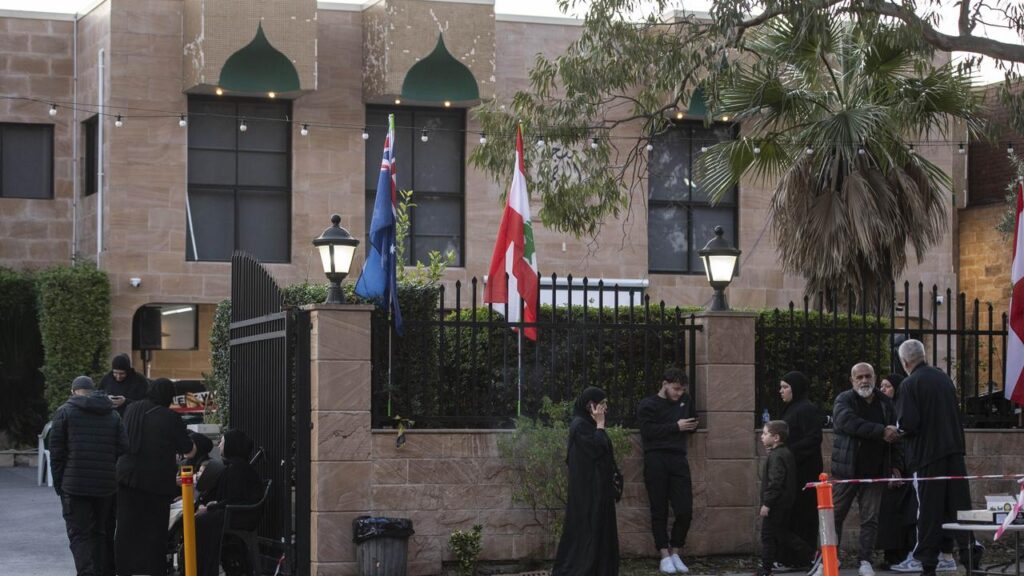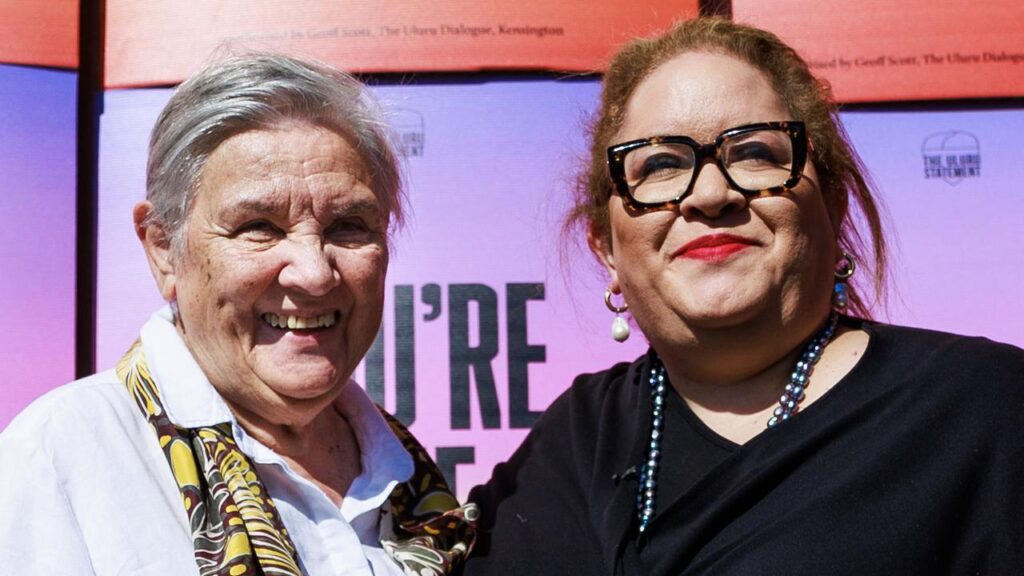World reacts to landmark Australian case
Written by admin on August 5, 2024
The case of an Australian mother jailed for forcing her daughter into marriage has reverberated across the UK and US, as the woman represents a landmark conviction in the Australian courts.
Victorian woman Sakina Muhammad Jan, 48, has been jailed for coercing her daughter Ruqia Haidari, 21, into marriage.
The mother, who will spend at least one year in prison, is the first person jailed in Australia under new laws criminalising forced marriages. As she was sentenced in a Melbourne court last week, Jan’s case and the legal implications have been hotly covered and debated by major news international outlets, including CNN and the BBC.
Ms Haidari was murdered by her husband shortly after the marriage, and he will spend at least 19 years in prison after a separate criminal case.
Two other forced marriage cases are working their way through Western Australian and NSW courts.
Jan’s trial and sentence has been uncharted waters.
The case has received worldwide coverage.
Laura Vidal worked with women at risk or in the midst of forced marriages for a decade across NSW.
She says sending Sakina Jan to prison could make forced marriage victims even more hesitant to go to police and implicate their family members.
“Is it really going to deter people from engaging with the behaviour when it is so deeply rooted in social, economic, cultural and gender expectations,” Dr Vidal told NewsWire.
“The most common thing that is said to me is I don’t want anyone to get in trouble, I just don’t want to get married.”
In 2017, the last year Dr Vidal did social work in clinics, across NSW her agency was receiving about 50 referrals per year. Barely 10 per cent of those victims or potential victims wanted to speak with police.
It is the job of the Australian Federal Police to investigate forced marriage, and reports which the AFP can then investigate have hovered around 90 each year for the past eight years.
Ms Haidari spoke to the AFP before her marriage, but chose not to make a complaint which the authorities could investigate.
“That (complaint) was not something that she wanted to pursue … so as a result, her navigation and negotiation of marriage became her own to do without support.”
Despite the police interview, and telling friends she did not want to get married, Ms Haidari’s 500-person wedding in Shepparton went ahead.
“The other complexity of this case too is that there’s an identification of a single offender, Sakina (Jan),” Dr Vidal said.
There was a matchmaker involved, and hundreds of people at the wedding, so it was a flawed argument to say the conviction was “successful” or that forced marriage had been deterred, Dr Vidal said.
The Commonwealth laws were passed in Canberra in 2013. Dr Vidal challenges the practical deterrence effect of the laws, given it took 11 years for the first conviction.
Darren Renton, SC, prosecuted the Jan case.
“With this case, there’s tragedy all round,” he told NewsWire.
“Beyond the poor girl who lost her life, everybody who was hurt: you’ve got the collateral damage.
“And mum didn’t know that this guy was going to do that.”
The uncharted nature of this crime, and a complete lack of higher court precedent, was a distinct challenge, Mr Renton said.
“There was no precedent. It was unprecedented.”
Details were also misreported.
The couple’s Islamic marriage agreement, nikah, referenced a $14,000 sum to go from the husband to the bride’s family.
But some media reports ran with the line that Jan had sold her daughter for $15,000, making incorrect references to a dowry payment.
“If you don’t have any understanding (of different cultures) how easy would it be to think ‘he’s bought her’ or ‘she’s sold her’,” the man who prosecuted Jan said.
Ms Haidari told police the groom had sent a $10,000 payment to the family. Where that money or the other $4000 is, remains unanswered.
The totality of emotions for all parties was the most confronting thing for Mr Renton, an experienced public prosecutor.
And he believes prison is a deterrent just like police speed cameras; if drivers know there’s a camera, they slow down. If family know they can go to jail for forced marriage, maybe fewer will happen.
“Most people take for granted their freedom … you don’t appreciate how much freedom you have until you don’t have it,” Mr Renton said.
“Prison is the ultimate sentence of deterrence, because it literally takes everything away. Whether it’s effective or not, will remain to be seen.
“Sentences of imprisonment are not stopping the drug trade. But that’s the tool that the courts have.”
Jan was sentenced to three years in prison, but will only serve one year.
The mother of five has never been to school, speaks no English, and had her first child soon after being married as a 12 or 13-year-old. The family’s birthdays are all officially New Year’s Day, with only the year being recorded accurately in Afghanistan.
A member of Jan’s family needed help from paramedics when she collapsed in court after the prison term was handed down this week.
Lawyer at a specialist family violence practice for migrant and refugee women, Ajsela Siskovic, says the vast majority of Australian forced marriages she sees are unlike this case.
Her Melbourne-based agency, InTouch, helped people from 97 different countries last year. Case workers have about 30 languages covered, and overall they supported speakers of 91 different languages in 2023.
The standard Australian forced marriage happens overseas, and the woman is brought to Australia.
The woman is usually totally alone in a new country and cases typically follow a grim script – domestic servitude, verbal abuse, serious abusive control, sexual assault and labour exploitation.
Ms Siskovic remembers a client forced to go with her husband to work as a landscaper immediately after giving birth, tending to the baby between acts of gruelling manual labour.
“I can’t stress to you how isolated some of these women are and how shunned they are in the community.”
InTouch does family and migration law, but Ms Siskovic thinks Jan’s sentence will deter others, to a point.
“It’s good to see these issues on the national agenda, and getting the media coverage it is,” she said.
“Data is very difficult to collect and verify, because a lot of our clients may not know they have been forced into a marriage.”
The confronting reality of reporting a family member to police does and will scare too many people, she says.
But an even bigger barrier is new migrants simply do not know where to get help,” Ms Siskovic said.
“A lot of our clients are scared of police. Perhaps in their country police can’t help them.
“Us being born here we think ‘we’re in trouble, we’ll go the police’. That thought does not enter their minds.”
As for Jan – who spent 13 years raising her kids in a refugee camp after the Taliban killed her husband – prison will be difficult, but Ms Siskovic thinks not impossible.
“She’s an Afghan refugee. Going to Australian jail is probably not the worst thing that’s happened to her.”
The experienced lawyer says the Australian laws clearly separate forced marriages from arranged marriages, an arrangement that has full and free consent.
Jan’s lawyer Andrew Buckland said he had recommended the prison sentence be appealed, but it would be Legal Aid’s decision to fund any appeal.
“From our point of view it’s a very harsh and cruel sentence,” he told NewsWire.
Mr Buckland was still deciding whether the conviction should be challenged. Any appeal needs to be filed by August 25.
Following Jan’s prison sentence, a NSW man could find himself behind bars later this year.
The 51-year-old father awaits sentencing in August for a separate forced marriage incident.
He has pleaded guilty to two aggravated charges of the sort Jan was found guilty; the aggravated offence carries a maximum nine-year sentence.
The man is on bail and the courts granted him a pseudonym.
In July, three Perth men fronted court, charged with forcing two teenage children to marry.
Police will allege the teenagers, one of whom was aged between 13 and 15 and the other who was 17, wanted to date each other but the relatives told them they would have to be married for cultural reasons. The trio will face court again in August.
Two of the charged men are related to the boy and one is related to the girl.
Victoria is the only state to have made forced marriage part of the definition of family violence for the purposes of obtaining a protection order.
Following the 2013 federal law change, this week the Attorney-General opened public consultation on civil protections for those at risk, particularly young women and girls.
“More than a decade on, forced marriage is the most reported slavery-like offence to the Australian Federal Police,” Attorney-General Mark Dreyfus said.
A new additional referral pathway to the Support for Trafficked People Program for victims and survivors has also been recently opened.
The Federal Police say victims are often reluctant to report their community members or family members.
“It can be incredibly difficult for vulnerable victims to come forward, however there is help and protection available,” AFP Human Exploitation Commander Helen Schneider said.
“We understand that forced marriage matters require a different law enforcement approach from other human trafficking and slavery matters, and the approach is often one of prevention and education.”







